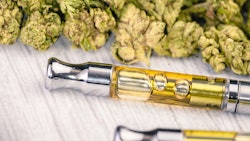
The 2024 presidential election represents a major opportunity for the next cannabis legalization wave as four states could reform their prohibition laws this November.
Florida, South Dakota and North Dakota voters will cast ballots on adult-use legalization measures, while Nebraskans will decide on a pair of medical cannabis legalization initiatives on Election Day.
Florida, in particular, represents a catalyst for industry growth: Not only is the Sunshine State home to roughly 23 million residents, but the Southern U.S. is the least progressive cannabis region in the nation and Florida could be the tipping domino for legalization.
While Florida voters will be attempting to pass an adult-use ballot measure for the first time—and the same goes for Nebraska with its medical cannabis initiatives—South Dakota and North Dakota will be attempting to amend failed legalization efforts from the 2022 midterm election.
But one common ingredient plays into the likelihood of success for all four states this year: Higher voter turnouts for presidential elections are generally viewed as favorable for passing cannabis-related ballot measures by legalization advocates.
South Dakota is a prime example of this phenomenon. Voters in the Mount Rushmore State passed an adult-use legalization measure with a 54.2% majority in the 2020 presidential election before Gov. Kristi Noem paved a path for the Supreme Court to strike down that election result. Two years later, South Dakota voters rejected a similar adult-use legalization measure with only 47% in support during the 2022 midterm election.
Nationwide, 66% of the voting-eligible population turned out for the 2020 presidential election, while just 46% did so for the 2020 midterm election, according to the Pew Research Center.
The results for cannabis measures were reflective: All five states with cannabis legalization measures in 2020 had majority support on Election Day, while only two of five states had majority support for their respective legalization measures in 2022.
So, what does the 2024 election have in store for cannabis? Below are the details:
Florida (Adult Use)

Ballot title: Adult Personal Use of Marijuana (text)
Votes needed for passage: 60% supermajority
Key provisions proposed: Amendment 3 would legalize adult-use cannabis, allowing those 21 years and older to purchase and possess up to 3 ounces of dried flower or 5 grams of concentrate for personal use. The state’s existing medical marijuana treatment centers could remain vertically integrated while expanding to a forthcoming adult-use market. The Florida Legislature would be responsible for determining a process for licensing additional market entrants. Adults and licensed operators “shall not” be subject to criminal or civil liability or sanctions under Florida law for use, possession or commercial operations under the amendment. The sponsors did not include home cultivation in the amendment to satisfy the state’s single-subject criteria, but nothing prevents the state Legislature from including home grows in follow-up legislation.
Effective date: Six months after voter approval.
Sponsor: Amendment 3 sponsor Safe & Smart Florida is chaired by David Bellamy, of the Bellamy Brothers music duo, and financially backed by many of Florida’s medical cannabis companies. As of Oct. 11, Trulieve had contributed more than $103 million to the campaign, while Verano ($3.5 million), Curaleaf ($3 million), Ayr Wellness ($511,653), Green Thumb ($504,525), Cresco Labs ($403,236) and Insa ($244,000) were the other major donors, according to the Florida Division of Elections.
Other supporters: Republican presidential candidate Donald Trump; Republican state Sen. Joe Gruters; Democratic state Sens. Shevrin Jones, Bobby Powell Jr. and Tracie Davis; Democratic state Reps. Patricia Williams and Lois Frankel; ACLU of Florida; Florida Democratic Party; Libertarian Party of Florida; Florida House Democratic Caucus; Florida Young Republicans; Republican Bradford County Sheriff Gordon Smith; Gadsden County Sheriff Morris Young; Florida Alliance for Retired Americans; Miami Gardens Police Chief Delma K. Noel-Pratt; Jacksonville Mayor Donna Deegan; Broward County attorney Harold Pryor; and Florida attorney John Morgan.
Opponents: Republican Gov. Ron DeSantis; Florida Attorney General Ashley Moody; Republican U.S. Sen Rick Scott; Republican U.S. Rep. Matt Gaetz; Republican state Sen. Ben Albritton; Republican state Reps. Sam Garrison and Daniel Anthony Perez; Republican Party of Florida; Florida Chamber of Commerce; Florida Sheriffs Association; and Citadel hedge fund CEO Ken Griffin.
Previous ballot attempts: This is Florida’s first adult-use legalization measure to go before voters. The Florida Supreme Court ruled a pair of previous adult-use legalization measures were misleading to voters and not sufficient to appear on the state’s 2022 ballot.
Recent poll(s): Nealy 64% of likely voters in Florida support Amendment 3, while 27% are opposed and 9% are undecided, according to a September survey conducted by Emerson College Polling/The Hill. An August survey of likely voters conducted by Suffolk University/USA Today showed similar results with 63% of likely voters supporting Amendment 3. Meanwhile, another August survey of registered voters conducted by Florida Atlantic University/Mainstreet Research USA showed 56% in support.
South Dakota (Adult Use)

Ballot title: An Initiated Measure Legalizing the Recreational Use, Possession, and Distribution of Marijuana (text)
Votes needed for passage: 50% + 1
Key provisions proposed: Measure 29 would legalize cannabis use, possession, distribution and home grows for individuals 21 years and older. The proposal establishes a possession limit of 2 ounces of dried flower, 16 grams of concentrate or 1,600 milligrams of THC. Individuals could grow up to six plants at home for personal use but no more than 12 plants per household. The measure would restrict where individuals could possess or consume cannabis, such as near schools or where tobacco is prohibited. It also would allow employers to restrict an employee’s use of cannabis, while property owners could regulate the use of cannabis on their property. To satisfy the state’s single-subject rule, the measure does not establish a commercial marketplace for licensed cultivation or dispensary sales.
Editor’s note: The South Dakota Legislature could adopt legislation to regulate a commercial market should Measure 29 pass.
Effective date: July 1, 2025.
Sponsor: Measure 29 is sponsored by South Dakotans for Better Marijuana Laws (SDBML), a committee that’s chaired by Executive Director Matthew Schweich and co-led by Deputy Director Quincy Hanzen. SDBML’s primary financial supporter is Grow South Dakota, a committee that received $200,065 in donations from the state’s medical cannabis operators earlier this year and transferred $197,133 of that money to help fund the initiative, according to a pre-primary campaign finance report.
Other supporters: Marijuana Policy Project; Cannabis Industry Association of South Dakota; and former Republican state Sen. Deb Peters, who is the treasurer for Grow South Dakota.
Opponents: Protecting SD Kids, a nonprofit political action committee of health care professionals, parents, educators, treatment providers, law enforcement and other concerned people. The Catholic dioceses of Sioux Falls and Rapid City also oppose the measure.
Previous ballot attempts: This is South Dakota’s third adult-use cannabis measure to appear on the statewide ballot. The previous two attempts included:
- In the 2020 election, South Dakota voters approved a constitutional amendment with 54.2% favoring reform. Still, that vote was overturned a year later when the state’s Supreme Court upheld a ruling that the amendment violated South Dakota’s single-subject rule. Gov. Kristi Noem paved the way for overturning the election results by launching a taxpayer-funded lawsuit challenging the constitutionality of the measure.
- In the 2022 election, South Dakota voters rejected a state statute to legalize adult-use cannabis with 53% of voters opposing the measure.
Recent poll(s): Nearly 52% of registered voters in South Dakota oppose Initiated Measure 29, while 42% support the measure and 7% are undecided, according to a survey released in June that was conducted by Mason-Dixon Polling & Strategy and sponsored by the Chiesman Center for Democracy at the University of South Dakota.
North Dakota (Adult Use)
Ballot measure: Initiated Measure 5 (statutory)
Ballot title: Legalization and Regulation of Cannabis (text)
Votes needed for passage: 50% + 1
Key provisions proposed: Measure 5 would create a licensed and regulated marketplace for the production, processing and sale of cannabis, allowing those 21 years and older to purchase and possess up to 1 ounce of cannabis flower, 4 grams of concentrate or 1,500 milligrams of THC, including up to 300 milligrams in edible products. Individuals 21 and older could grow three cannabis plants at home for personal use, with a limit of six plants per household. Also, the measure would preserve certain employer rights regarding the use of cannabis products by employees. The measure would supersede local ordinances that otherwise would prohibit the purchase, sale, use, delivery or growing of cannabis by or to individuals 21 years or older.
Effective date: The measure is effective 30 days after it is “approved by the people.” The measure also includes an Oct. 1, 2025, deadline for an authoritative body to implement a program, including licensing up to 18 adult-use dispensaries (up to $90,000 licensing fees) and seven cultivation/manufacturing facilities (up to $110,000 licensing fees).
Sponsor: Measure 5 is sponsored by New Economic Frontier (NEF), a committee that’s chaired by former Republican Bismarck Mayor Steve Bakken and financially backed by many of South Dakota’s medical cannabis companies. Pure Dakota Health contributed more than $236,000, while Curaleaf associate GR Holding OH-ND LLC contributed $180,000, according to a pre-general election finance report filed with the North Dakota Secretary of State.
Other supporters: Republican state Rep. Matthew Ruby; criminal defense attorneys Mark Friese and Chad McCabe; and Democrat Scott Brand, who ran for a seat in the North Dakota House in 2014.
Opponents: Brighter Futures Alliance; Chiefs of Police Association of North Dakota; North Dakota Sheriffs Association; North Dakota Hospital Association; and North Dakota Medical Association.
Previous ballot attempts: This is North Dakota’s third adult-use cannabis measure to appear on the statewide ballot. The previous two attempts included:
- In 2018, North Dakota voters rejected an adult-use cannabis legalization measure sponsored by Legalize ND with 59.5% opposed.
- In 2022, North Dakota voters rejected an adult-use cannabis legalization measure sponsored by New Approach North Dakota with 55% opposed.
Recent poll(s): Roughly 45% of registered voters in North Dakota support Initiated Measure 5, while 40% oppose and 15% are undecided, according to a September survey conducted by WPA Intelligence and commissioned by the North Dakota News Cooperative. A separate poll commissioned in June by Pat Finken, founder of the Brighter Future Alliance, which opposes Measure 5, found that 57% of North Dakota voters oppose the measure while 43% support it.
Nebraska (Medical)

Ballot title(s): Nebraska Medical Cannabis Patient Protection Initiative (text); and Nebraska Medical Cannabis Regulation Initiative (text)
Votes needed for passage: 50% + 1 (as well as court approval)
Key provisions proposed: Measure 437 intends to protect medical cannabis patients from criminal charges and prosecution by legalizing up to 5 ounces of medical cannabis for those with a written recommendation from a health care practitioner. At the same time, Measure 438 aims to adopt state law to establish a framework for a commercial medical cannabis marketplace with licensed businesses regulated by the Nebraska Medical Cannabis Commission.
Effective date: The effective date for these ballot measures depends on ongoing litigation in Lancaster County District Court, where Judge Susan Strong is weighing prohibitionist claims by former Republican state Sen. John Kuehn about the validity of signatures collected. Strong requested to hear evidence Oct. 29. If the litigants can prove there are enough questionable signatures from the petition drives that landed the measures on the ballot, then representatives from the legalization campaign will have the opportunity to respond on Oct. 31. Should this happen, Strong indicated a decision would likely extend beyond the Nov. 5 election, preventing the results from being officially certified on Election Day. Should voters adopt the initiatives and the lawsuit be thrown out, then the Nebraska Medical Cannabis Commission would be tasked with adopting regulations by July 1, 2025, and awarding licenses for a commercial marketplace by Oct. 1, 2025.
Sponsor: Measures 437 and 438 are sponsored by Nebraskans for Medical Marijuana (NMM), a campaign committee led by activist Crista Eggers, Democratic state Sen. Anna Wishart and former Democratic state Sen. Adam Morfeld. Nebraska Families 4 Medical Cannabis, a nonprofit 501(c)(4) group made up of patients, caregivers and advocates, is the main financial backer of NMM, contributing more than $700,000 toward the legalization campaign, according to the Nebraska Accountability and Disclosure Commission.
Other supporters: Growing the Good Life ($222,600), Western Future Fund ($200,000) and New Venture Fund ($50,000) are the other primary contributors.
Opponents: Former Republican state Sen. John Kuehn, who represented Nebraska’s 38th District from 2015 to 2019, is a longstanding prohibitionist who filed a lawsuit Sept. 12 challenging the validity of numbers signatures certified by Nebraska Secretary of State Bob Evnen. Kuehn is also a former State Board of Health member.
Previous ballot attempts: This is Nebraskans for Medical Marijuana’s third attempt to put a legalization question on the ballot. The previous two attempts included:
- In 2020, NMM gathered enough valid signatures to land on the ballot, but the Nebraska Supreme Court struck down the certified measure that September, ruling that it violated the state’s single-subject rule—the main reason there are two separate measures this year.
- In 2022, the group faced a financial setback when one primary donor died in a plane crash and another was diagnosed with a terminal illness. Canvassers fell short of collecting enough signatures to meet the state and county requirements that year.
Recent poll(s): Roughly 59% of registered voters in Nebraska support the 2024 legalization measures, while 33% are opposed and 8% are unsure, according to an Emerson College Polling survey conducted Sept. 26 to Oct. 2. An earlier poll conducted by the Neilan Strategy Group in February indicated that 70% of Nebraskans supported legalizing medical cannabis, the Nebraska Examiner reported.



























